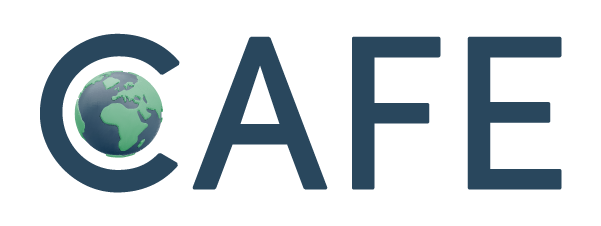Climate CAFE GitHub Organization#
Climate & Health Tutorials and Code Sharing#
CAFE RCC has a established a community GitHub organization to share code, examples, and tutorials on working with common data formats and sources. We are assembling a collection of standard operating procedures (SOPs) for data processing, integration, harmonization, and analysis with code and tutorials in order to facilitate reproducibility and reusability for the climate and health Community of Practice.
The CAFE Data Management Function team has begun to develop and share code and tutorials that cover tasks such as spatial aggregations, data harmonization, and analysis across languages including R and Python. As the CAFE community grows to include more of the climate and health Community of Practice, we will continue to refine and expand these materials to showcase additional analyses platforms (e.g., ArcGIS). We also hope that community members joining the CAFE initiative will contribute, share, and reuse code and software within the CAFE GitHub.
All code repositories on GitHub whose content is intended to be shared with the CAFE research community should be tagged with the GitHub topic tag climate-cafe. This enables anyone in the climate and health community of practice to easily find relevant code repositories simply by searching for the climate-cafe term on GitHub, by clicking on the climate-cafe topic tag anywhere it appears on GitHub, or by navigating directly to topics/climate-cafe.
Current Tutorials and Code Walkthroughs#
Our team members have created tutorials and code examples for several key data management procedures and common analysis challenges that climate and health researchers may encounter. These tutorials are intended to provide usable example materials that researchers can download and step through on their own. Many of these materials are still under active development, so please check back regularly for updates.
Below is a live embedding of the spreadsheet of our current tutorials (both published and under development). Click here to view the full spreadsheet directly.
Expanding Our Efforts#
We hope that in addition to learning from these tutorials, community members will see these materials as representative examples of the kinds of materials they can develop and share through the CAFE themselves. If you are interested in contributing a tutorial or example workflow to the CAFE yourself, please contact us about joining CAFE Github organization or having your existing Github repository added to CAFE through a new fork, so that we can share your materials with the broader climate and health Community of Practice.
